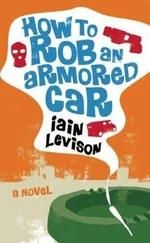Bragi Ólafsson - Pets
Здесь есть возможность читать онлайн «Bragi Ólafsson - Pets» весь текст электронной книги совершенно бесплатно (целиком полную версию без сокращений). В некоторых случаях можно слушать аудио, скачать через торрент в формате fb2 и присутствует краткое содержание. Год выпуска: 2008, Издательство: Open Letter, Жанр: Современная проза, на английском языке. Описание произведения, (предисловие) а так же отзывы посетителей доступны на портале библиотеки ЛибКат.
- Название:Pets
- Автор:
- Издательство:Open Letter
- Жанр:
- Год:2008
- ISBN:нет данных
- Рейтинг книги:5 / 5. Голосов: 1
-
Избранное:Добавить в избранное
- Отзывы:
-
Ваша оценка:
- 100
- 1
- 2
- 3
- 4
- 5
Pets: краткое содержание, описание и аннотация
Предлагаем к чтению аннотацию, описание, краткое содержание или предисловие (зависит от того, что написал сам автор книги «Pets»). Если вы не нашли необходимую информацию о книге — напишите в комментариях, мы постараемся отыскать её.
Pets — читать онлайн бесплатно полную книгу (весь текст) целиком
Ниже представлен текст книги, разбитый по страницам. Система сохранения места последней прочитанной страницы, позволяет с удобством читать онлайн бесплатно книгу «Pets», без необходимости каждый раз заново искать на чём Вы остановились. Поставьте закладку, и сможете в любой момент перейти на страницу, на которой закончили чтение.
Интервал:
Закладка:
The captain’s voice introduced itself over the loudspeaker. To begin with it sounded as if he was only going to chat to the passengers, but then he began to relate various facts concerning the flight, for instance that we were flying over Scotland, at a height of thirty thousand feet and there were twenty-five degrees of frost outside.
“That’s not very warm,” Armann commented. Yet I sensed that he was quite happy with the temperature in these parts, besides it was in keeping with the clothes he was wearing. “What would that be in Fahrenheit?” he added.
I told him I didn’t know, maybe about twice as high, and at that moment Armann grabbed the opportunity that I was afraid he had been waiting for. He had caught me in a trap that I wouldn’t be able to get out of for the rest of the trip.
“Yes, but that is just it,” he said and stuffed the Opal box back in his breast pocket, this time so it would be easier to pull out again. “Shouldn’t one say ‘twice as low ’? That’s the thing with frost and heat; as soon as the frost increases the heat goes down, isn’t that so?”
I felt like telling him to discuss it with the captain but refrained. It wasn’t such a terrific sacrifice spending three hours of one’s lifetime on something in which one hadn’t the slightest interest. I reminded myself that what doesn’t kill a man should harden him, and with that in mind I launched into the discussion on frost and temperature, but said I hadn’t given it much thought, at least not specifically.
“It is exactly one of the things we make mistakes about,” Armann said. I expected him to pass me his Opal box. “In reality the cold never goes up.” When he had uttered these words, he bent forward a little and glanced at me, as if he was trying to judge my level of intelligence or observation.
“Really?” I asked dubiously, and consoled myself with the thought that it took much less energy participating in something boring than trying to struggle against it, especially when there was no possibility of avoiding it.
“Yes, it is just like that,” Armann said and raised his index finger to emphasize the point. “Heat rises on the other hand. When there are heat waves old people die in their cars, even people my age — except, of course, I don’t have a car — but as soon as one moves to a colder part of the world, as for instance where we are now, the situation is reversed: the cold actually goes down as the frost hardens.”
“No, are you sure about that?” I interrupted. I thought it rather unlikely that he really believed what he was stating.
“Yes,” he said, but he took time to reconsider his earlier statement. “What I mean is that the more degrees of frost that are added, the lower the heat goes, and as a result the temperature goes down. In other words: the frost goes down.”
I was going to object but decided to see just how he would get himself out of this dilemma. I gave him my full attention to show him I expected an explanation.
“We can take a clear example from everyday life,” he continued and it was quite obvious that he was waiting impatiently for the flight attendant, who had started to serve drinks, to reach us. “Let’s imagine a particular person, one man in a two-room flat. Another man comes in the door and the number of persons in the flat goes up; the number of inhabitants increases but the space allotted to each one diminishes, that is if we imagine that both of them are going to live in the flat.”
“Now wait a minute.”
“Otherwise they aren’t inhabitants, as we understand the word,” he added hastily.
“I wasn’t referring to that.”
“Let’s just imagine that these two individuals have bought the flat together. They were maybe inclined that way, if you know what I mean.”
“But you are talking about two completely different concepts,” I said. “Numbers and space. One can’t compare numbers and space, especially when you are trying to support your proposition that cold can’t go up, just go down.”
I thought that he would begin to realize the frivolity of the conversation and give up. But he stubbornly carried on.
“Yes, you can,” he said, “just as hot and cold are completely different concepts. It’s feasible that there are no other entities in the world as strongly opposed as heat and cold. One goes up while the other goes down.”
“Not at the same time,” I objected. “Though the temperature goes up somewhere, that doesn’t mean that the cold goes down at the same time. Unless you mean that while the heat goes up in Bolivia, for example, there will be more frost in Norway, or something like that.”
“That is just what I mean,” Armann replied, very pleased with himself. “Just like the example with the flat; the greater the number of inhabitants the less space there will be.” His serious expression — and the pause in his argument — hinted that we had reached a certain level of agreement in our discussion, “a certain landing,” if one could talk in those terms. But, even though the discussion had come to a close, I couldn’t resist adding one more comment.
“But the temperature goes down too,” I said and emphasized the word down.
“Is that so?” Armann said. I couldn’t make out whether his question revealed his lack of interest or lack of confidence.
“You can’t deny it,” I said.
“Only up to a certain level,” he answered. “When the temperature is so low that it reaches freezing point, then it begins to. .” He hesitated, and, in order to gain time to think, he waved to the flight attendant, who was still too far away to be of any assistance.
I, for my part, began to wonder, as a result of our conversation, what decision the captain would take when the plane approached Keflavik airport. Would he go up or down? Would we, Armann and I, and the rest of the passengers, succeed in landing?
8
When he emerged from the bathroom, he stayed on the threshold for a little while, lifted his hands up to his face to sniff them, then took hold of the doorknob without turning around, and quietly closed the door. He looked about for the woman, but when he didn’t catch sight of her, he went into the next room. The door was partly open, and, after giving it a gentle push, it revealed a child’s bedroom. He smiled and looked around the colorful little room; it was full of toddlers’ toys which were jumbled together with things that belonged to a slightly older child, obviously a boy. Then he walked over to a small desk with a computer on top. The computer seemed to be too big for the table; there wasn’t room for anything else on it. He pressed a letter on the keyboard and a soldier in a camouflage uniform — holding a big machine gun, with a helmet on his head and a fierce, pitiless expression on his face — popped up. He was startled. He jerked his hands back and shook them, like he was also holding a vibrating machine gun, though he didn’t add the appropriate sound effects. Then he tapped the computer, as if he was patting a child on the head, before turning to the large birdcage beside the desk.
There were two little budgies in the cage. He bent down to it, tapped on the rails, and clicked with his tongue in an attempt to attract their attention. The birds just looked at him, nothing more; they seemed completely uninterested. He picked up a yellow pencil which was lying on the desk beside the computer, poked it carefully in between the bars of the cage, and waggled it, but the birds took no notice. So he poked the pencil into the stomach of one of the birds. That resulted in both of them flying up with loud squawks; they seemed to crash into each other or the sides of the cage. It was difficult to see exactly what they were doing, but the noise they produced brought Hinrik’s frightened wife running into the room and she asked him what on earth was going on. He answered that he had unexpectedly found himself in this room; he had no doubt gone in the wrong direction when he came out of the bathroom. The birds seemed to have calmed down.
Читать дальшеИнтервал:
Закладка:
Похожие книги на «Pets»
Представляем Вашему вниманию похожие книги на «Pets» списком для выбора. Мы отобрали схожую по названию и смыслу литературу в надежде предоставить читателям больше вариантов отыскать новые, интересные, ещё непрочитанные произведения.
Обсуждение, отзывы о книге «Pets» и просто собственные мнения читателей. Оставьте ваши комментарии, напишите, что Вы думаете о произведении, его смысле или главных героях. Укажите что конкретно понравилось, а что нет, и почему Вы так считаете.











